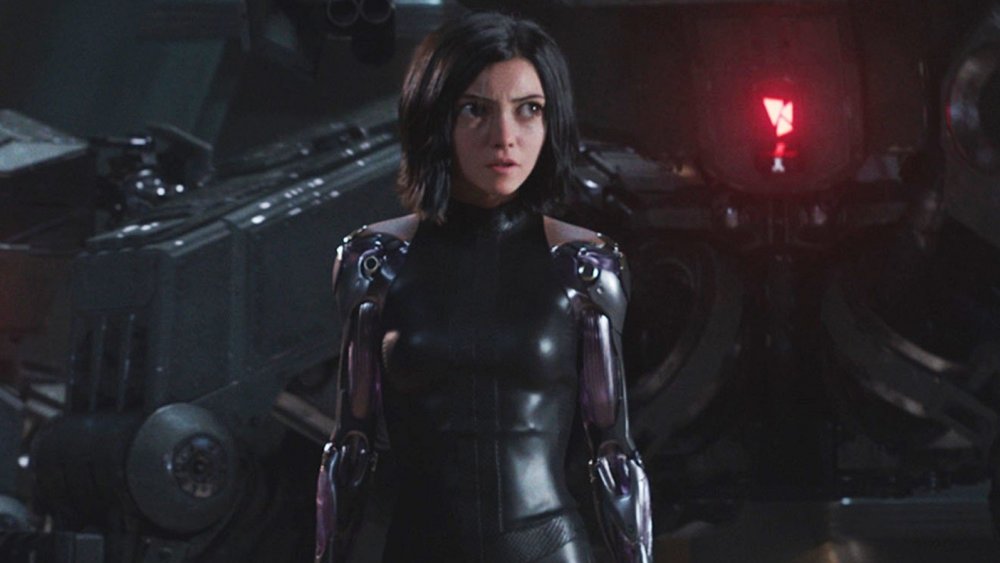Did Alita: Battle Angel Come Out Too Late?
Filmmaking is a tricky business. Working in the industry isn't just about telling gripping stories or crafting memorable characters, it's about putting together a piece of media that demonstrates some understanding of the culture it exists within. What audiences are interested in seeing, what the competition is doing, and what the industry is capable of from a technical standpoint are all constantly evolving as time goes on. Keeping their finger on the pulse and making something up-to-date is crucial for any filmmaker's success.
Ensuring their latest project isn't already behind the curve is a risk that every blockbuster filmmaker has to run at some point. This is especially tedious when a movie takes forever to enter production, meaning its window of relevancy is ever more fleeting thanks to the rapidly changing film landscape. A potential example of this phenomenon is 2019's Alita: Battle Angel, a film which, after a nearly 20-year gestation period, didn't exactly make the impact at the box office that studio execs were hoping for. Audiences and critics moved on without it, leaving many to wonder if Alita hit theaters just a bit too late for its own good.
Visual effects don't sell tickets like they used to
Over the past few decades, filmmaking technology has advanced exponentially, giving creators the chance to create moving images unlike anything ever seen before. The speed of this evolution means those not up to date with the latest industry tech can be ignored. For example, the CGI Tyrannosaurus Rex from 1993's Jurassic Park was a groundbreaking technical marvel at the time, helping cement the film as a groundbreaking cinematic achievement. However, if the movie came out in 2020, in all of its '90s glory, its once-innovative special effects would get lost in the shuffle.
This is but one of the ailments that Alita: Battle Angel suffered from when it arrived on the big screen, coming across as painfully outdated in its reliance on visuals over crafting a rich story and smooth dialogue. As explained by Simon Brew of Film Stories, "There was a period in the 1990s and early 2000s where special effects was sufficient box office collateral, and studios realised there was a universal appeal to computer graphics." In that environment, the film would've thrived, but that is a long time ago now, and the business, and fans, caught up.
CGI is reaching a plateau, and people are less in awe of what can be done with it than they were when it was a brand new thing. Therefore, it's not as easy to bring in audiences and make a considerable profit off of fancy VFX alone, much to Alita's detriment.
Alita's obscurity hurt its chances with the casual moviegoer
An Alita: Battle Angel adaptation has been in the works since as early as 2003, with James Cameron initially signed on to helm the project. Before work could get underway, he shifted his focus to the Avatar franchise, leaving Alita in limbo for the better part of a decade. Come 2016, Robert Rodriguez signed on and the movie finally came to pass. The anime series based on Yukito Kishiro's cyberpunk manga finally had a live-action interpretation. Sadly, 2019 wasn't the time nor place for it to make a splash with viewers.
This issue was also raised by Brew, who stated "You press ahead with a project based on source material that the mass market is unaware of, and that's your marketing spend doubled for a start. How many studios are going to risk that, when such projects now struggle to offer a financial return?" What he's pointing to here is that, back when the planning for Alita initiated, movie theaters, and, by proxy, moviegoers, weren't inundated with big, loud, sci-fi action series to keep up with. The territory was fairly open, leaving plenty of room for outside-the-box thinking and obscure adaptations to take hold.
Nowadays, there are a handful of box office juggernauts that rule the roost — Marvel, DC, and Star Wars, to name a few — that make it increasingly difficult for fresh ideas, no matter how niche, to gain traction. Why would a casual moviegoer check out a film like Alita: Battle Angel, based on a Japanese graphic novel they've never heard of when they could go see what the latest installment in the Marvel Cinematic Universe has in store? If spectators enjoy dedicating their time and money to a property they're familiar with, something new doesn't stand a chance.
At the end of the day, Alita: Battle Angel has an incredibly devoted subset of fans, and deservedly so. It's still an entertaining watch and is worth the long wait for its release, but one can't help but think about how stunted its potential was because of it. With hopes for a sequel persisting among die-hards, time will tell if a second Alita attempt can learn from the first' mistakes and produce a movie suitable for the modern era.


